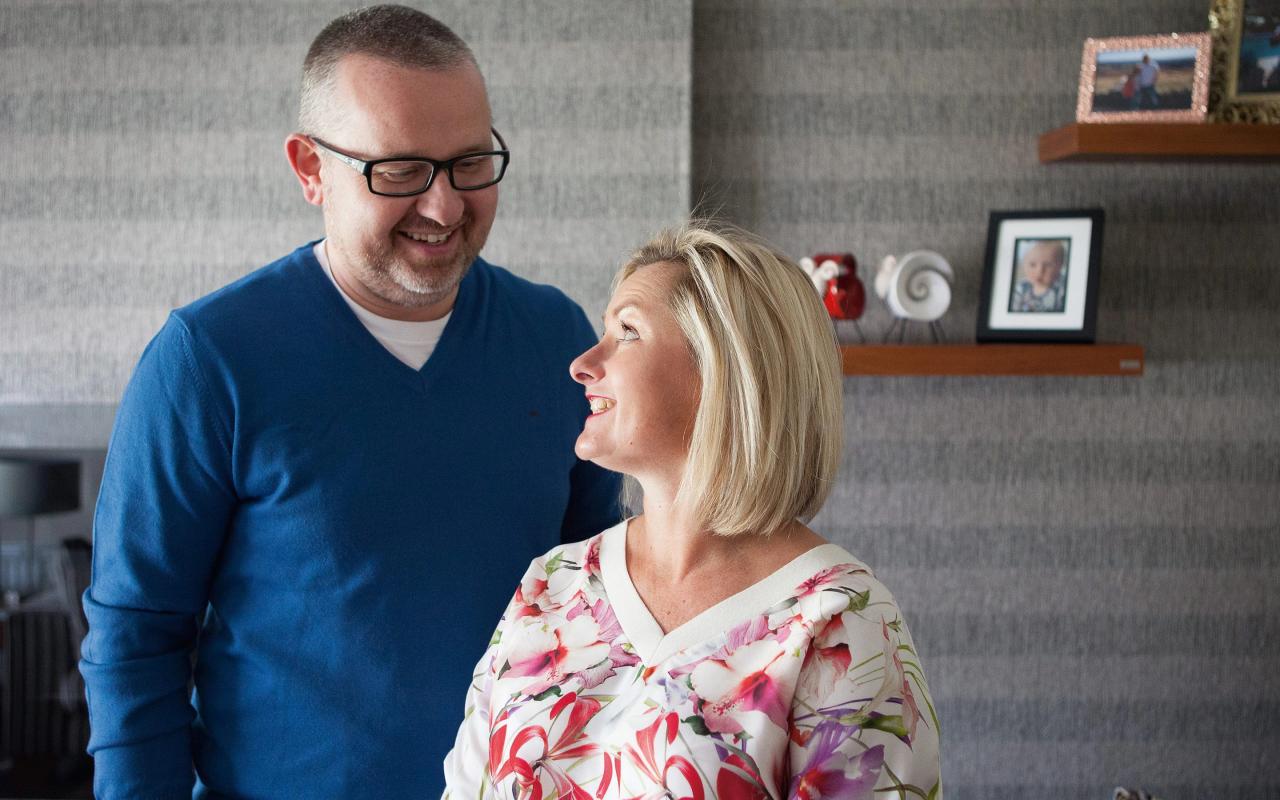In the realm of dating, age has always been a topic of intrigue and debate. While societal norms have traditionally dictated that men should be older than their female partners, the increasing prevalence of age-gap relationships, particularly those involving younger men, has raised questions and sparked discussions.
This phenomenon has garnered attention and scrutiny, prompting us to delve into the complexities of age-gap relationships and explore the reasons why they continue to elicit surprise and judgment in some quarters. We will examine the societal, cultural, and psychological factors that influence our perceptions of these relationships and uncover the potential benefits and challenges they may present.
Societal Norms and Expectations
Societal norms and expectations have a significant influence on how we view and navigate romantic relationships. Traditional gender roles have long dictated that men should be older and more dominant than their female partners. This age gap was seen as a symbol of male power and control, and it has persisted in many cultures to this day.
These traditional norms have shaped societal views on age gaps in dating. When a younger man dates an older woman, it challenges these established expectations and can raise eyebrows or even elicit disapproval from society. It can be seen as a deviation from the norm, and some people may question the legitimacy or intentions of such a relationship.
Age Gap Expectations
- In many cultures, men are expected to be older than their female partners.
- This age gap is often seen as a sign of male power and dominance.
- When a younger man dates an older woman, it challenges these traditional expectations.
Perceived Power Dynamics
Age gaps can introduce power imbalances in relationships, which can be exacerbated when the age difference is significant. For example, an older partner may have more life experience, financial stability, and social connections, which can give them an advantage in decision-making and control.
Manipulation and Exploitation
In some cases, the perceived power imbalance can lead to manipulation or exploitation. The older partner may use their influence to pressure the younger partner into doing things they are uncomfortable with or to control their behavior. This can create an unhealthy and potentially dangerous dynamic.
Fertility and Childbearing
Age gaps in relationships can have significant implications for fertility and childbearing. As women age, their fertility naturally declines, and this decline becomes more pronounced after the age of 35. Men, on the other hand, experience a more gradual decline in fertility with age.
For couples with large age gaps, this disparity in fertility rates can pose challenges when it comes to having children. Women who are significantly older than their male partners may have difficulty conceiving naturally, and they may be more likely to experience complications during pregnancy and childbirth.
Fertility Rates and Childbearing Outcomes
Studies have shown that age gaps can significantly impact fertility rates. For example, a study published in the journal Human Reproduction found that women who were 10 years older than their male partners had a 20% lower chance of conceiving within 12 months of trying, compared to couples with no age gap.
The study also found that women who were 15 years older than their male partners had a 35% lower chance of conceiving within 12 months.
In addition to fertility rates, age gaps can also affect childbearing outcomes. Women who are older when they give birth are more likely to experience complications such as premature birth, low birth weight, and birth defects. They are also more likely to have multiple births, which can increase the risk of complications for both the mother and the babies.
Health and Well-being of Mother and Child
The age gap between a couple can also impact the health and well-being of both the mother and the child. Older mothers are more likely to experience health problems during pregnancy, such as gestational diabetes, preeclampsia, and postpartum hemorrhage. They are also more likely to have children with birth defects.
Children born to older mothers may also have an increased risk of health problems, such as low birth weight, premature birth, and developmental delays. In some cases, the age gap between a couple can be so large that the father is significantly older than the mother, which can increase the risk of certain health problems for the child, such as autism and schizophrenia.
| Factor | Impact on Fertility | Impact on Childbearing Outcomes |
|---|---|---|
| Female age | Declines after age 35 | Increased risk of complications during pregnancy and childbirth |
| Male age | Gradual decline after age 40 | Increased risk of certain health problems for the child, such as autism and schizophrenia |
| Age gap | Can impact fertility rates and childbearing outcomes | Can increase the risk of health problems for both the mother and the child |
Generational Differences
Relationships with age gaps can involve significant generational differences, leading to potential disparities in communication, values, and relationship dynamics.
These differences can stem from the distinct cultural, technological, and social experiences that shape each generation.
Communication Styles
Generational differences can manifest in communication styles, with younger individuals often more comfortable with technology and social media, while older individuals may prefer traditional forms of communication.
This can lead to misunderstandings or frustrations in conveying thoughts and emotions.
Values and Beliefs
Generations may hold differing values and beliefs due to their unique life experiences.
For instance, younger generations may prioritize flexibility and work-life balance, while older generations may emphasize stability and financial security.
Relationship Expectations
Expectations within relationships can vary across generations.
Younger individuals may be more open to non-traditional relationship structures, such as cohabitation or open relationships, while older individuals may adhere to more conventional relationship norms.
Maturity and Emotional Development

Age differences in relationships can influence maturity levels and emotional development, impacting relationship dynamics. Younger partners may exhibit less emotional maturity, leading to communication challenges and unmet expectations. Conversely, older partners may possess greater emotional intelligence and self-awareness, contributing to relationship stability.
Emotional Intelligence
Emotional intelligence encompasses self-awareness, self-regulation, motivation, empathy, and social skills. It enhances communication, conflict resolution, and overall well-being in relationships. Self-awareness allows partners to recognize and understand their own emotions, while self-regulation enables them to manage and express emotions appropriately.
Self-Awareness and Self-Regulation
Self-awareness and self-regulation are crucial for healthy relationships. Mindfulness, journaling, and therapy can foster these qualities. Self-aware individuals can identify their strengths and weaknesses, promoting self-acceptance and empathy towards others. Self-regulation enables partners to control impulsive reactions, leading to more constructive communication.
Communication Styles
Emotional maturity influences communication patterns. Active listening, empathy, and assertive communication are key elements of healthy communication. Younger partners may struggle with these skills, leading to misunderstandings and frustration. Older partners, with greater emotional maturity, can effectively communicate their needs and resolve conflicts peacefully.
Conflict Resolution
Emotional maturity plays a vital role in conflict resolution. Mature partners approach conflicts with a willingness to compromise and negotiate. They seek support from trusted individuals or couples therapy to facilitate constructive resolution. Emotional intelligence enables partners to understand each other’s perspectives and find mutually acceptable solutions.
Long-Term Relationship Outcomes
Maturity and emotional development contribute to long-term relationship outcomes. Shared values, compatibility, and mutual support foster relationship satisfaction, commitment, and resilience. Emotionally mature partners navigate challenges together, maintaining open and honest communication, and supporting each other’s growth and well-being.
Peer Pressure and Social Acceptance
Dating someone younger can attract attention and judgment from society, leading to social stigma and pressure. This stigma stems from stereotypes and prejudices that associate age gaps with specific characteristics and assumptions.
Social Stigma and Stereotypes
-
-*Gold-digger
Younger partners may be perceived as seeking financial stability or material gain.
-*Cougar
Older women dating younger men may face labels of being predatory or desperate.
-*Control issues
Older partners may be seen as exerting power and dominance over younger partners.
Legal and Ethical Considerations
When it comes to relationships with significant age gaps, there are certain legal and ethical concerns that need to be considered.
These concerns arise primarily due to the potential for abuse or exploitation, particularly in cases involving minors.
In many jurisdictions, there are laws in place that prohibit sexual relationships between adults and minors. These laws are designed to protect young people from being taken advantage of by older individuals who may have more power or influence over them.
Potential for Abuse or Exploitation
In relationships with significant age gaps, there is a greater risk of abuse or exploitation. This is because the older partner may have more power or influence over the younger partner, which can make it difficult for the younger partner to say no or to leave the relationship.
Abuse or exploitation can take many forms, including physical, emotional, and sexual abuse. It can also include financial exploitation, such as taking advantage of the younger partner’s financial resources.
Exceptions and Counterarguments
While societal norms often frown upon significant age gaps in romantic relationships, there are numerous examples of successful and fulfilling relationships that defy these conventions.
These relationships often challenge societal biases and demonstrate that age is not the sole determinant of compatibility and happiness. Factors such as shared values, strong communication, and mutual respect contribute to the success of these relationships.
Common Misconceptions and Stereotypes
One common misconception is that age-gap relationships are inherently predatory or exploitative. However, research suggests that this is not always the case. In fact, many age-gap relationships are based on genuine love, respect, and companionship.
Another stereotype is that younger partners are only interested in older partners for financial or material gain. However, studies have shown that this is often not the case. Many younger partners are attracted to older partners for their maturity, wisdom, and life experience.
Potential Benefits and Challenges
Age-gap relationships can offer unique benefits and challenges. For example, older partners may provide stability and financial security, while younger partners may bring energy, enthusiasm, and a fresh perspective to the relationship.
However, age-gap relationships may also face challenges such as differing life stages, communication barriers, and societal disapproval. It is important for couples in these relationships to be aware of these potential challenges and to communicate openly and honestly about their expectations and needs.
Analyze the potential benefits and drawbacks of dating a younger partner, considering factors such as maturity levels, life goals, and relationship expectations.

When considering a romantic relationship with a younger partner, it’s essential to assess the potential benefits and drawbacks. While age differences can bring unique dynamics to a relationship, they can also pose challenges that need to be carefully considered.
Maturity Levels
One of the primary concerns when dating a younger partner is the difference in maturity levels. Younger individuals may have less life experience and emotional maturity, which can lead to communication difficulties and differing perspectives on life goals. On the other hand, younger partners can bring a sense of spontaneity and energy to the relationship.
Life Goals
Life goals can play a significant role in the compatibility of a couple. If partners have vastly different aspirations, such as career paths, family planning, or financial stability, it can create tension and strain on the relationship. Open and honest communication about life goals is crucial to ensure alignment and avoid future disappointments.
Relationship Expectations
Relationship expectations can also vary depending on age. Younger partners may have different views on commitment, intimacy, and the pace of the relationship. It’s important to discuss expectations clearly to avoid misunderstandings and ensure that both partners are on the same page.
Cultural Variations

Attitudes towards age gaps in dating vary significantly across different cultures and regions. Societal norms and values play a crucial role in shaping these attitudes, influencing the level of acceptance or disapproval of age-gap relationships.
In some cultures, such as in some parts of Asia, age gaps in relationships are more common and widely accepted. This may be due to traditional values that emphasize respect for elders and the belief that older partners can provide stability and wisdom.
In other cultures, such as in many Western societies, age gaps in relationships may be met with more scrutiny and disapproval. This may be due to societal expectations that relationships should be between people of similar age and that significant age differences can lead to power imbalances or relationship challenges.
Historical Context
Societal views on age gaps in relationships have undergone significant transformations throughout history. In ancient civilizations, such as those of Greece and Rome, it was common for older men to marry younger women. This practice was often driven by economic and political considerations, as it allowed older men to secure alliances and expand their wealth and influence.In
the Middle Ages, the Church played a significant role in shaping attitudes towards age gaps. The Church’s teachings emphasized the importance of chastity and the sanctity of marriage, which contributed to a negative view of age gaps, particularly those involving older men and younger women.
This view was reinforced by the widespread belief that women were inferior to men and should be subservient to them.During the Renaissance and Enlightenment periods, there was a gradual shift in attitudes towards age gaps. The rise of humanism and the emphasis on individual rights and freedoms led to a more tolerant view of age gaps, particularly among the educated elite.
However, significant social and cultural barriers remained, and age gaps were still generally frowned upon by the majority of society.
The Impact of Social, Cultural, and Economic Factors
The acceptance or rejection of age gaps in relationships has been influenced by a complex interplay of social, cultural, and economic factors. In many cultures, there are strong social norms and expectations regarding appropriate age differences between partners. These norms may vary depending on factors such as the gender of the partners, the social class, and the cultural context.Economic
factors have also played a role in shaping attitudes towards age gaps. In some societies, older men with wealth and power have been more likely to marry younger women, as this has been seen as a way to secure their financial and social status.
Conversely, in other societies, younger women have been more likely to marry older men in order to improve their economic prospects.
The Role of Religion, Media, and Popular Culture
Religion has also had a significant impact on societal views on age gaps. Many religions have specific teachings regarding the appropriate age differences between partners, and these teachings have often been used to justify discrimination against couples with age gaps.The
media and popular culture have also played a role in shaping societal perceptions of age gaps. In many popular films and television shows, age gaps are often portrayed in a negative light, which can reinforce negative stereotypes and biases.
The Evolving Definition of “Age Gap”
The definition of “age gap” has evolved over time. In the past, age gaps were typically defined in terms of the difference in years between partners. However, in recent years, there has been a growing recognition that age gaps can also be defined in terms of the different life stages and experiences of partners.
This more nuanced understanding of age gaps has led to a more tolerant view of age gaps in some societies.
Online Dating and Age Gaps
The advent of online dating platforms has significantly impacted the prevalence of age gaps in relationships. These platforms offer a wider pool of potential partners and provide users with more flexibility and control over their search criteria.
One of the key benefits of online dating for individuals seeking relationships with significant age differences is the ability to connect with people they might not otherwise encounter in their daily lives. Online dating algorithms and search filters allow users to specify age ranges, making it easier for them to find potential partners who meet their desired criteria.
Benefits of Online Dating for Age Gap Relationships
- Wider pool of potential partners
- Flexibility and control over search criteria
- Ability to connect with people outside of one’s immediate social circle
- Increased opportunities for intergenerational connections and learning
Challenges of Online Dating for Age Gap Relationships
However, online dating also presents some challenges for individuals navigating age gaps. One potential concern is the risk of misrepresentation or deception. Some users may misrepresent their age or intentions, which can lead to misunderstandings and disappointment.
- Risk of misrepresentation or deception
- Potential for generational differences in communication styles and expectations
- Social stigma and judgment from others
- Legal and ethical considerations, particularly when there is a significant age difference
Real-Life Case Studies
Numerous real-life case studies illustrate the impact of online dating on age gaps in relationships. For example, a 2019 study by the Pew Research Center found that 17% of American adults have been in a relationship with someone at least 10 years older or younger than them.
Online dating was cited as a significant factor in many of these relationships.
In another study, researchers from the University of California, Berkeley found that couples who met online were more likely to have significant age gaps than couples who met offline. The researchers attributed this finding to the fact that online dating platforms allow users to search for potential partners based on a wider range of criteria, including age.
Role of Social Media and Online Communication
Social media and online communication also play a significant role in facilitating relationships with significant age differences. Social media platforms provide opportunities for individuals to connect with others who share similar interests and values, regardless of their age. Online communication tools, such as instant messaging and video chat, allow individuals to build relationships and get to know each other better before meeting in person.
Ethical Implications
The ethical implications of age gap relationships formed through online dating should also be considered. In some cases, significant age differences can raise concerns about power dynamics, exploitation, or abuse. It is important for individuals to be aware of these potential risks and to take steps to protect themselves from harm.
Advice for Navigating Online Dating with Age Gaps
For individuals navigating the complexities of online dating with significant age differences, it is important to proceed with caution and awareness. Here are some tips:
- Be honest and upfront about your age and intentions.
- Be respectful of generational differences and be willing to compromise.
- Be aware of the potential risks and take steps to protect yourself.
- Trust your instincts and don’t be afraid to walk away from a situation that doesn’t feel right.
Health and Physical Considerations
Relationships with significant age gaps may involve unique health and physical challenges due to differences in physical abilities, stamina, healthcare needs, and potential for age-related health issues. Open and honest communication is crucial for addressing these challenges, setting realistic expectations, and seeking professional support when necessary.
Physical Abilities and Stamina
Differences in physical abilities and stamina can impact activities and shared experiences. Younger partners may have higher energy levels and endurance, while older partners may experience physical limitations or require more rest. Adaptability, flexibility, and mutual respect are essential for navigating these differences.
Healthcare Needs
Healthcare needs can vary significantly with age. Younger partners may have fewer immediate health concerns, while older partners may require regular medical attention or medications. Open communication about health expectations and concerns, as well as willingness to compromise and accommodate different needs, is important.
Age-Related Health Issues
As individuals age, they may face specific health issues related to aging. These issues can impact relationships, requiring additional care, support, and understanding from both partners. Early discussions about potential health concerns and the willingness to provide support can help couples prepare for these challenges.
Emotional Intelligence and Communication
Overcoming age-related challenges in relationships requires emotional intelligence and effective communication. Emotional intelligence involves understanding and managing one’s own emotions, as well as empathizing with and responding to the emotions of others.Open and honest communication is crucial for fostering understanding and addressing potential misunderstandings or conflicts.
Partners should make an effort to express their thoughts and feelings clearly, actively listen to each other, and show empathy and understanding.
Fostering Open Communication
* Establish regular check-ins to discuss relationship dynamics and any concerns.
- Encourage each other to share perspectives and feelings without judgment.
- Practice active listening by giving full attention, asking clarifying questions, and summarizing to ensure comprehension.
- Respect each other’s boundaries and limits when it comes to sharing personal information.
Personal Growth and Development
Relationships with age gaps can present unique opportunities for personal growth and development. They can challenge preconceived notions, expand perspectives, and facilitate self-discovery.
Younger partners may bring fresh ideas, enthusiasm, and a different outlook on life. They can encourage their older counterparts to embrace new experiences, take risks, and stay connected with the present.
Intergenerational Learning
- Age gaps can foster intergenerational learning, where individuals from different generations share their knowledge, experiences, and perspectives.
- Older partners can impart wisdom, life lessons, and historical context, while younger partners can provide insights into current trends, technology, and cultural shifts.
Flexibility and Adaptability
- Relationships with age gaps can promote flexibility and adaptability. Partners may need to adjust their expectations, communication styles, and life goals to accommodate the differences between them.
- This can foster a willingness to compromise, negotiate, and grow together, leading to a more resilient and adaptable relationship.
Self-Reflection and Introspection
- Age gaps can trigger self-reflection and introspection. Partners may question their own beliefs, values, and life choices in light of their relationship.
- This can lead to a deeper understanding of oneself, a reevaluation of priorities, and a renewed sense of purpose.
Final Summary
In conclusion, the decision of whether or not to engage in an age-gap relationship is a deeply personal one. While societal norms and expectations may play a role in shaping our initial reactions, it is crucial to approach these relationships with an open mind and a willingness to challenge preconceived notions.
By fostering open communication, practicing emotional intelligence, and embracing personal growth, individuals can navigate the complexities of age-gap relationships and discover the unique opportunities they offer for connection, love, and self-discovery.
Common Queries
Why is it still considered unusual for a woman to date a younger man?
Societal norms and expectations have traditionally dictated that men should be older than their female partners. This is rooted in patriarchal values that emphasize male dominance and control in relationships.
What are some of the challenges that couples with a significant age gap may face?
Age-gap relationships can present unique challenges, including differences in life experiences, values, and maturity levels. There may also be societal pressures and prejudices to navigate.
Can age-gap relationships be successful?
Yes, age-gap relationships can be successful if both partners are emotionally mature, have compatible values, and are willing to work through any challenges that may arise.
What are some of the benefits of dating someone younger?
Dating someone younger can bring fresh perspectives, energy, and a sense of adventure to a relationship. It can also challenge preconceived notions and promote personal growth.
What are some of the drawbacks of dating someone younger?
Potential drawbacks of dating someone younger include differences in life goals, communication styles, and maturity levels. There may also be societal pressures and prejudices to contend with.

